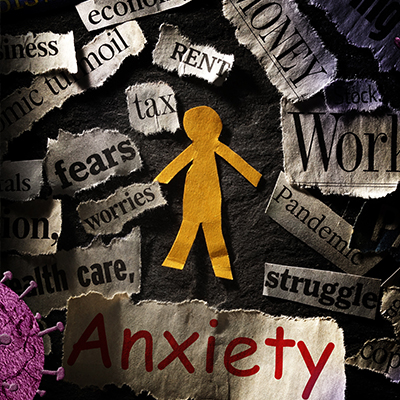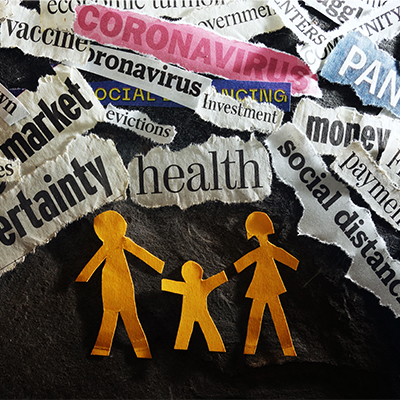Close to the globe a amount of economies, which includes Australia’s, are starting off to emerge from lockdown. Although the coronavirus has not disappeared, governments and persons are more and more knowledgeable of what they require to do to deal with ongoing challenges and retain our economies afloat.
So, what has COVID-19 taught us about today’s overall economy? Listed here, Professor Andrew Beer, Govt Dean, UniSA Enterprise shares 10 factors that COVID-19 has taught us about the Australian overall economy.
1. Supply chains are for a longer time and much more fragile than we considered
In Australia, and globally, we arrived to realise that critical products and infrastructure – from chemical compounds made use of to examination for COVID-19 as a result of to respirators to assist hospitalised people – came from a little variety of resources a lengthy way absent. The consequence was enormous delays, as retailers have been not able to source materials that experienced under no circumstances formerly been unavailable, foremost to a countrywide discussion all around the will need to build sovereign functionality in production and other effective things to do.

2. In a crisis, persons however panic buy, even when there is no lack
In Australia, a lack of supermarket stock created headlines across Australia. Empty shelves of bathroom paper before long prolonged to shortages of hand sanitisers, soaps, and pantry products these kinds of as flour and pasta. This led to outlets limiting purchases for every transaction, the closest we have occur to rationing given that Environment War II. Unquestionably, hoarding does not make perception, but in uncertainty, irrational behaviour prevails.
3. We can near down our economies remarkably quickly
As before long as the connection involving journey and COVID-19 was founded, governments all-around the entire world brought journey to a halt, imposing curfews and effectively positioning their economies into ‘deep freeze’. Much more than five months because the 1st scenario was claimed in Wuhan, global travel is even now limited, with several state and territory border shutdowns also in impact in just Australia. More broadly, we shut the vast majority of our enterprises: cafes, hotels and restaurants, as effectively as gyms, locations of worship and, in locations, colleges. Many other small business homeowners realised there was minimal benefit in continuing to trade in an surroundings devoid of prospects, with their voluntary closures adding to the unemployment queues and the perception of sizeable improve.
4. Details technology truly is as very good as the hype
Just about without pause, corporations all over the entire world transformed to on the net activity enabled by video clip-conferencing and on the net processing. On the internet conferences, remote product sales, and digital outreach companies quickly pivoted confront-to-confront services to on the internet functions. Now, as firms consider how they might return to some semblance of typical, we should anticipate several of these on-line changes to remain.
5. Developed economies are really dependent on significant-contact industries to make work
As cafés, restaurants, spas and gyms shut, unemployment queues soared, showing just how dependent Australia is on shopper company pushed industries. When April studies discovered unemployment at 6.2 for each cent, the range of individuals with a task collapsed by almost 600,000 – the major drop in record. As Australia begins to equipment up for the long run, these are the sectors governments are looking for to kick-get started.

6. The health economy is extra than just emergencies
Government steps to guarantee all doable health and fitness assets were being available to offer with COVID-19 experienced the perverse consequence of placing wellbeing workers out of perform as dentists and small surgical procedures have been shut down. The hasty transfer to halt all ‘non-urgent’ surgical procedures saw countless numbers of Australians needing functions these types of as hip surgical procedures or knee replacements left in limbo – and so as well the health professionals, nurses and health care skilled within all those fields – illustrating the wide scope of the wellness sector. Elective surgical procedures built their return on 14 Could in South Australia.
7. The upcoming of assets marketplaces is unsure, in particular industrial house
Lots of companies, getting found they can function practically, will have to be asking themselves why pay back rent? Specifically, when quite a few vital staff members have found out they significantly like to work from house. With benefits ranging from a lack of lengthy commutes in rush hour, to proven productivity resulting from flexible operate, the pandemic has shown the validity and efficiency of digital places of work.
8. In the 21st century, each financial system is dependent on many others
No matter if it is the schooling sector, production, tourism or mining, worldwide demand is pivotal to achievement and no organization can escape the effects of shocks to important investing companions. Critically, how each and every country and each and every market respond has essential movement-on outcomes for other individuals. In Australia, few readers or learners have arrived from China, but ongoing demand from Chinese metal mills has sustained our exports of iron ore. And, in the case of iron ore, the profound affect of COVID-19 on Brazil has saved rates and Australian export volumes sturdy.
9. Most persons even now believe in their governments in a time of disaster
Globally, and in Australia particularly, compliance with government lockdown provisions was large, enabling the reopening of some economies far more immediately and with higher security. Adherence to social distancing, journey limitations and quarantines have noticed South Australia turn into correctly COVID-19-no cost. This achievement has additional to the State’s lustre as a harmless vacation spot and introduced forward pursuits such as big sports situations in front of a (smaller) group, the opening of bars, and the continuation of schooling.
10. Ultimately, rebuilding economies usually takes more time than shutting them down, but financial and labour industry reform has created us substantially additional flexible than we employed to be
Currently, green shoots are showing in the economic landscape, but the problem for us now, will be to nurture their advancement. Governments obviously have a function to participate in, but so too do individual businesses and consumers. For homeowners of smaller firms and the managers of bigger enterprises, this time of transition offers an option to rethink their firms. This is not a time to retreat to entirely community markets and nearby demand. Instead, the brightest horizons are open for those people who continue to have interaction regionally but arrive at out to the worldwide stage.




